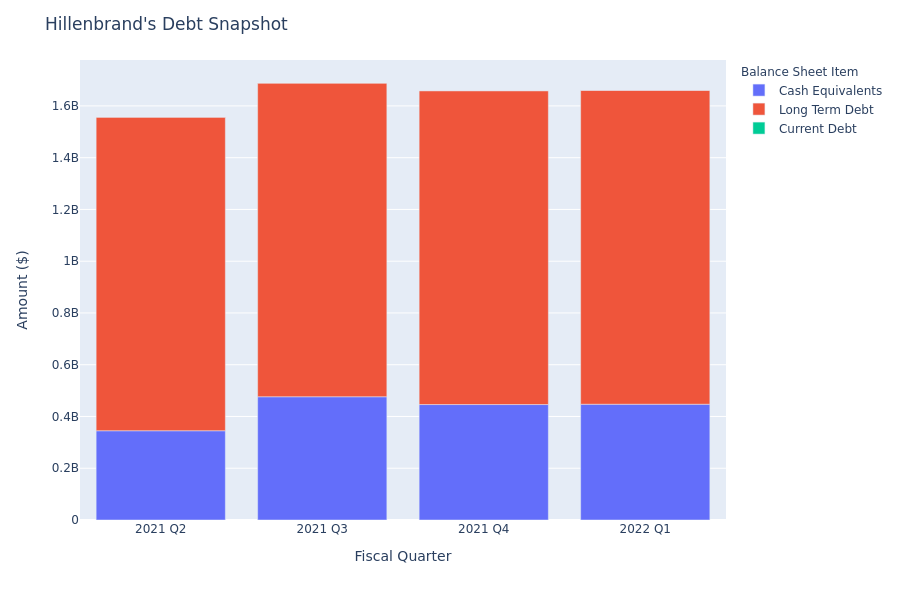
Over the past three months, shares of Hillenbrand (NYSE:HI) decreased by 4.11%. Before having a look at the importance of debt, let us look at how much debt Hillenbrand has.
Hillenbrand's Debt
Based on Hillenbrand's balance sheet as of February 2, 2022, long-term debt is at $1.21 billion and current debt is at $0.00, amounting to $1.21 billion in total debt. Adjusted for $447.40 million in cash-equivalents, the company's net debt is at $766.00 million.
Let's define some of the terms we used in the paragraph above. Current debt is the portion of a company's debt which is due within 1 year, while long-term debt is the portion due in more than 1 year. Cash equivalents include cash and any liquid securities with maturity periods of 90 days or less. Total debt equals current debt plus long-term debt minus cash equivalents.
Shareholders look at the debt-ratio to understand how much financial leverage a company has. Hillenbrand has $3.99 billion in total assets, therefore making the debt-ratio 0.3. As a rule of thumb, a debt-ratio more than one indicates that a considerable portion of debt is funded by assets. A higher debt-ratio can also imply that the company might be putting itself at risk for default, if interest rates were to increase. However, debt-ratios vary widely across different industries. A debt ratio of 35% might be higher for one industry and normal for another.
Importance Of Debt
Debt is an important factor in the capital structure of a company, and can help it attain growth. Debt usually has a relatively lower financing cost than equity, which makes it an attractive option for executives.
However, interest-payment obligations can have an adverse impact on the cash-flow of the company. Having financial leverage also allows companies to use additional capital for business operations, allowing equity owners to retain excess profit, generated by the debt capital.
Looking for stocks with low debt-to-equity ratios? Check out Benzinga Pro, a market research platform which provides investors with near-instantaneous access to dozens of stock metrics - including debt-to-equity ratio. Click here to learn more.








